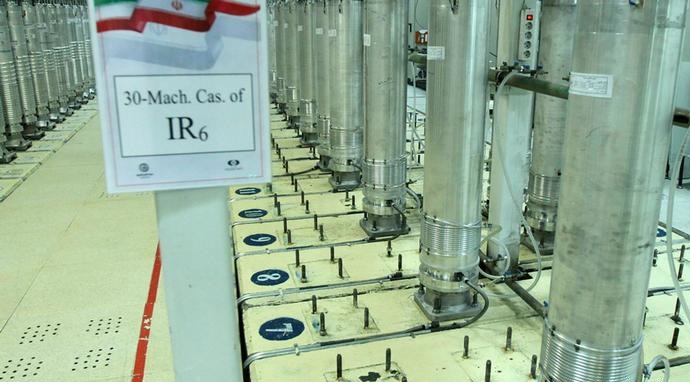
The recent G20 Summit in Italy ended, leaving the world powers still uncertain and concerned over the state of the Iranian regime’s nuclear programs and whether the regime will cooperate and re-join nuclear negotiations in Vienna.
The elected leaders of the United States, Germany, France, and the United Kingdom gave a joint statement stating that the ‘only sure way to avoid a dangerous escalation’ is to put effort into concluding negotiations ‘as a matter of urgency’.
The regime has been biding their time and stalling plans to re-join negotiations, all the while, they’ve been accelerating their nuclear program and extorting concessions from the international community, as well as preventing UN inspectors from accessing their nuclear sites for maintenance checks.
The People’s Mojahedin Organization of Iran (PMOI/MEK) said, “The regime’s continued testing of its counterparts’ will is even raising concerns among its own analysts and officials, several of whom have warned about the consequences of continuing provocative measures against the West.”
In the past, the regime has only agreed to negotiations in order to save themselves from mounting sanctions from international powers placed on them. The dire state of the economy in Iran at the moment means that society is on the verge of explosion, and the only thing keeping the Iranian people from overthrowing the regime are the repressive security forces who are brutally cracking down on protests.
The continuing demonstrations across the country are steps away from escalating to an uprising akin to that of November 2019, or perhaps even worse. The uprising two years ago brought the regime to the verge of collapse, so now with the current crises, and a restive society who live under extreme poverty and have nothing to lose, the next uprising will likely crush the regime entirely.
The MEK said, “The regime has two paths out of the current dilemma, all of which will have dire consequences for the rule of the mullahs. First, the regime can continue to avoid nuclear negotiations and instead slash expenses on ballistic missiles, nuclear weapons, and backing terrorist groups in the region.”
If expenses are slashed, this will in turn give the regime money to finally address the grievances of Iranian citizens who have been protesting consistently in recent months. The regime, however, fear that if they pull out of funding terrorist proxy groups across the Middle East, they will have to ‘fight for survival on the streets of Tehran, Mashhad, Isfahan, and other major Iranian cities’.
The second option is for the regime to end its stalling tactics and return to negotiations. This would likely result in sanctions being lifted, and the economic pressure in Iran being eased. The likelihood of this happening is unlikely as the regime fear such a move would lead to their eventual collapse. Either way, the regime’s continual disregard of international norms has led them to the point of deadlock, from where the only way forward is down the path of destruction.
The MEK said, “What this means for the international community is that the regime will not negotiate in good faith. A regime that is headed by a serial killer and mass murderer does not intend to return into the good graces of the international community—it is desperately holding on to power with all its might.”